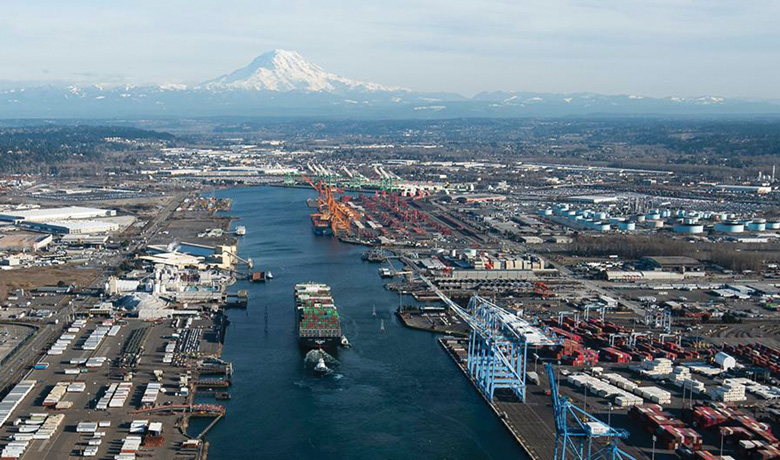A study detailing how a private 5G network would enable the Tacoma Tideflats to accelerate current and future technology innovation and establish global leadership in the maritime industry has been published by a non-profit, software development company, and partners. Washington Maritime Blue, a non-profit, strategic alliance formed to accelerate innovation and sustainability in a blue economy, and software development ecosystem 5G Open Innovation Lab, in collaboration with two of its founding partners, published findings and recommendations from the Tacoma Tideflats 5G Network Feasibility Study in late January. In addition to technology acceleration, the study also lays the foundations for the…
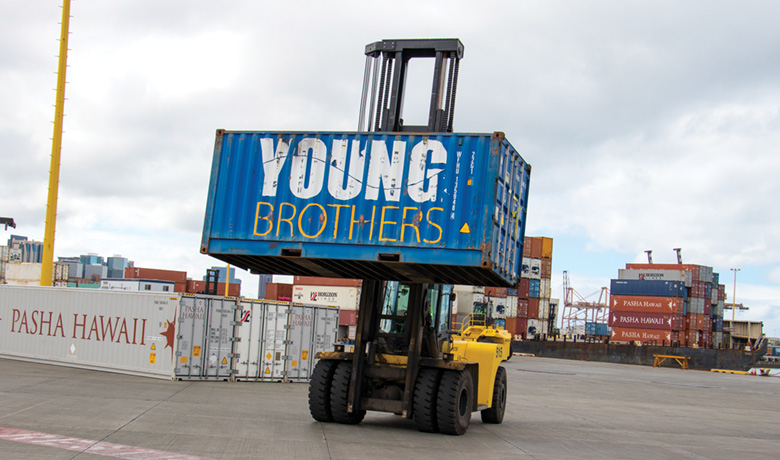
Honolulu-based shipping company Young Brothers LLC will be able to buy new forklift scales thanks to a grant of more than $200,000 from the U.S. Maritime Administration’s America’s Marine Highway Program, the Hawaii Department of Transportation recently announced. “This grant represents a critical and necessary funding mechanism to assist in the modernization of our equipment at all our island ports, enabling our highly skilled employees to more safely and efficiently move cargo around the island ports and load the barge,” Young Brothers President Jay Ana said. Young Brothers, an independently managed subsidiary of Foss Maritime Co. and part of the…
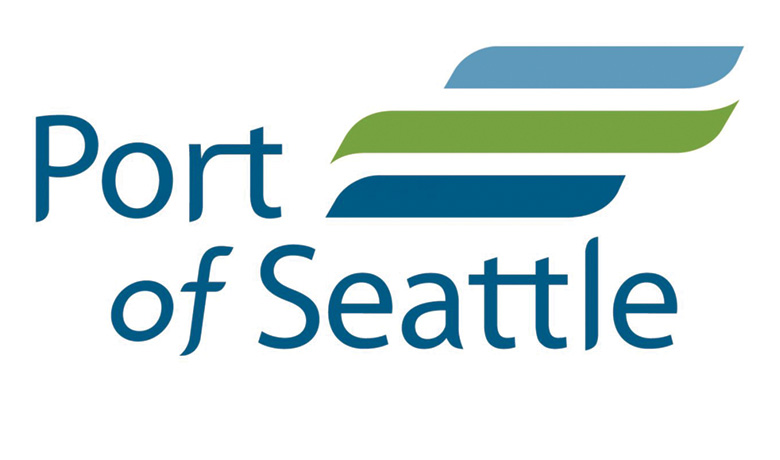
David Freiboth has retired from his position as senior director of labor relations for the Port of Seattle, and Senior Labor Relations Manager Mikel O’Brien has assumed the role of interim director, the port announced in late January. Freiboth, whose retirement went into effect at the end of January, had been a major part of the Puget Sound labor community and served more than three decades as an advocate for workers —from executive secretary of the King County Labor Council to president of the Inlandboatman’s Union of the Pacific —before coming to the port. In his role at the Port…
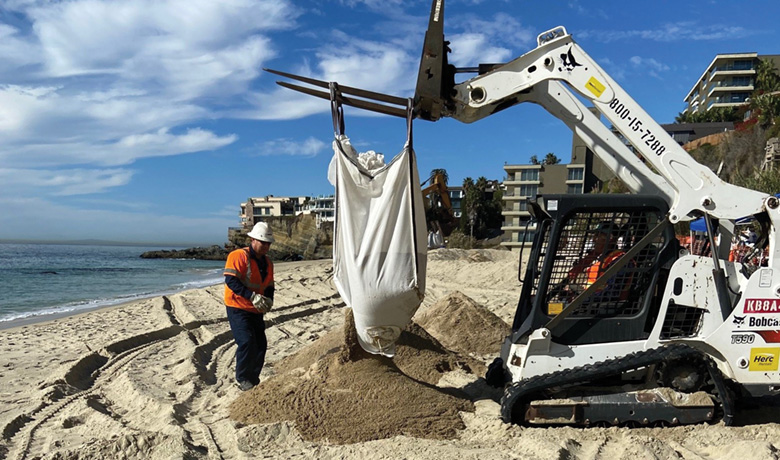
Spill response and recovery are an integral and necessary part of the maritime industry. In spill response we see ghosts of vessels past, consequences of the present and glimpses into the future of industry actions. Understanding how industry experts are managing these situations, as well as how researchers are working to create solutions can better inform planning for future incidents. These three case studies demonstrate adaptation to unconventional spill response and recovery efforts. Thousand Steps Beach, Orange County, California Recent headlines on spill response have focused on the multiple beach closures in Southern California caused by an anchor-dragging incident months…
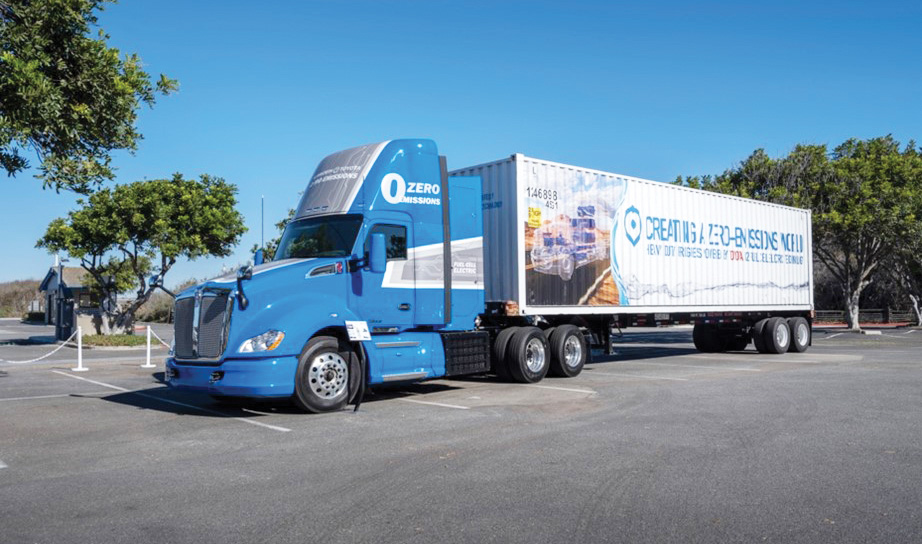
Per their 2017 Clean Air Action Plan (CAAP) pact, the Los Angeles and Long Beach seaports continue their push to establish a zero-emissions platform by 2035. The plan aims to eliminate all carbon-emitting drayage trucks and transition the current fleet servicing the ports to zero-emissions operations by the deadline. While advancements in technology, namely electric and hydrogen fuel-cell technology, are keeping pace in making a zero-emissions future possible, the high cost of transitioning to zero-emission trucks and a lack of charging and fueling infrastructure present genuine concern for the ports and drayage service providers alike. Many truck manufacturers are already…
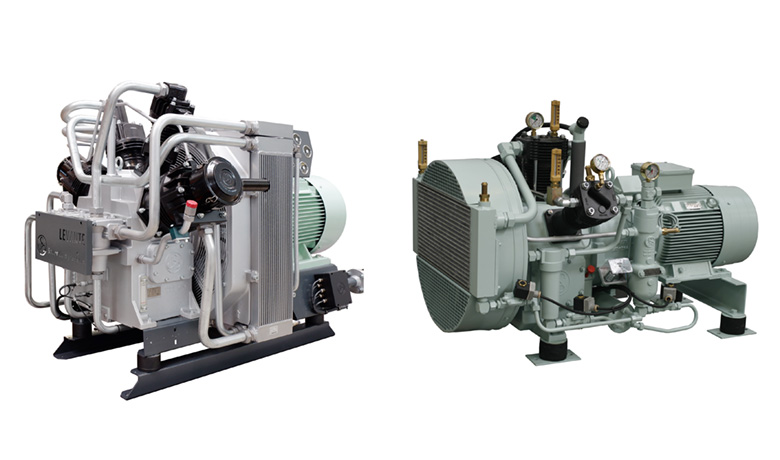
Container ships, tankers, cruisers – the majority of seagoing vessels with an engine power of at least 20,000 kW are equipped with a three-stage air-cooled starting-air compressor these days. The powerful technology reduces heat and allows for enormous cost savings. Sauer Compressors discovered the potential of three-stage air-cooled compressors for the shipping industry early on and has been a pioneer in developing these compressors for almost 50 years. In 1975, when the Railship I first entered service on the Travemünde, Germany to Hanko, Finland route, it had been the world’s largest railway ferry. While its length of about 180 meters…
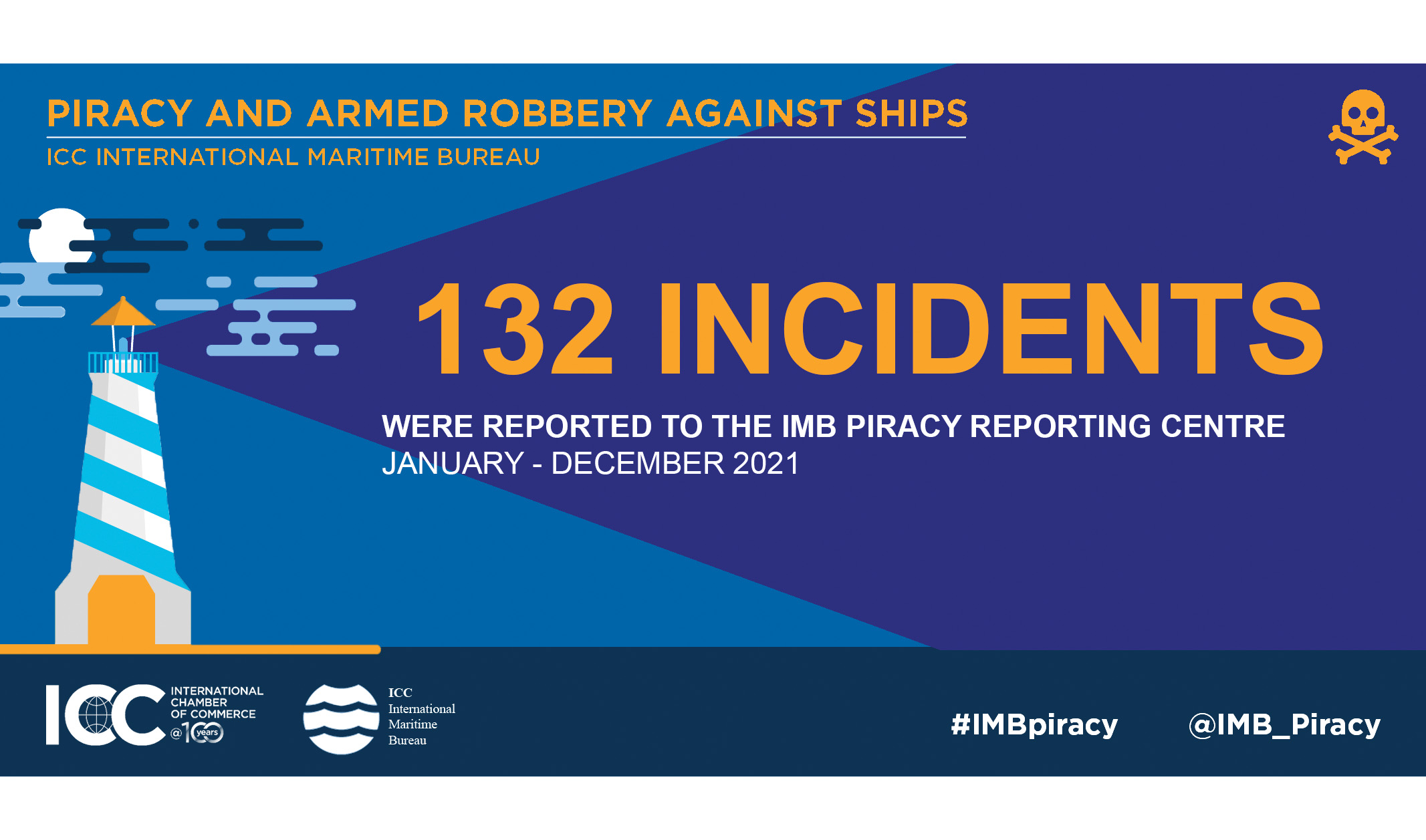
Maritime piracy and armed robbery attacks in 2021 reached their lowest recorded level since 1994, according to the annual piracy report of the International Chamber of Commerce, published Jan. 13. The chamber’s International Maritime Bureau (IMB) attributes the drop in incidents to vigorous action taken by authorities, but it is also calling for continued coordination and vigilance to ensure the long-term protection of seafarers. “While the overall reduction in globally reported incidents is welcomed, the IMB Piracy Reporting Centre urges coastal states to acknowledge the inherent risk from piracy and armed robbery and robustly address this crime within the waters…
An analysis of 2020 insurance claims data by London-based insurance and related risk management services provider TT Club points to an increase in impact related incidents, with corrosion of tank containers’ inner surface and contamination caused by cargoes previously carried as significant other causes of loss. The analysis makes clear that the effects of increased volumes of tank containers used to trade chemicals and other liquids on the primary east-west trades have altered, to a degree, the risk profile of damage to such units. While in previous years there has been a consistent dominance of contamination as the major source…

In late January 2022, a substantial ransomware attack negatively impacted at least 17 ports and oil terminals in Western Europe. The ransomware/malware attack also affected oil storage and transport. The companies reportedly impacted, according to a report on the GovInfoSecurity website included Oiltanking and Mabanaft in Germany, SEA-Invest in Belgium, and Evos in The Netherlands. Also affected were six oil storage terminals in the Amsterdam-Rotterdam-Antwerp area. The impacts of the cyberattack resulted in re-routing tankers, significantly disrupting supply chains and causing difficulty loading and unloading refined product. The Baker Botts LLP international law firm indicated that as of early February,…
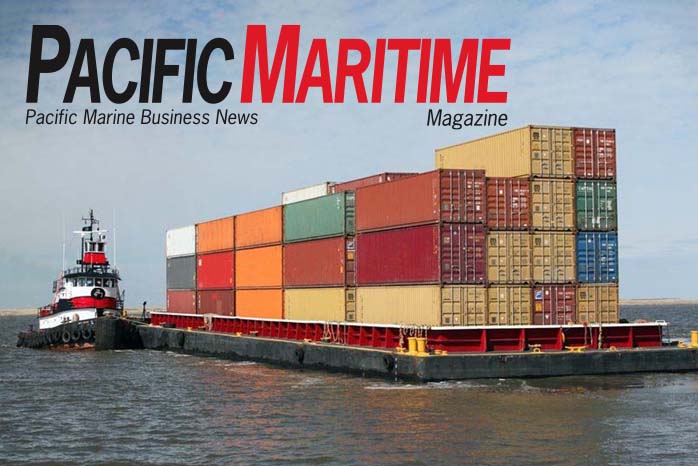
I’m happy to announce that we’re soon bringing back a feature that had been a mainstay of the magazine for many years, plus we’re also adding a brand-new column to our pages. Starting with the April issue, we plan to have a vessel feature in each issue of Pacific Maritime, focusing on a new or newly updated marine craft in the maritime operations sector. Writing most of the profiles will be a newcomer to the magazine, Seattle area-based writer Norris Comer. Norris, who regularly contributes to Pacific Northwest-based and national magazines on a variety of topics, is a sometimes-mariner whose…

